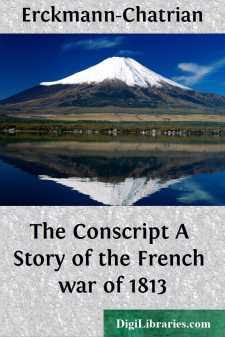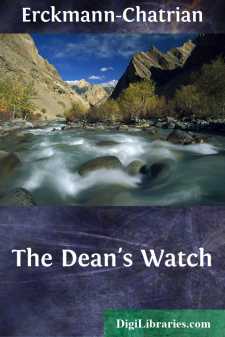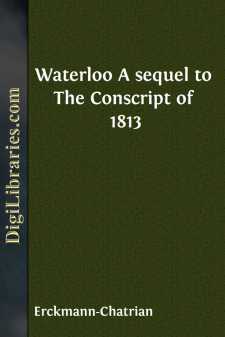Categories
- Antiques & Collectibles 13
- Architecture 36
- Art 48
- Bibles 22
- Biography & Autobiography 813
- Body, Mind & Spirit 142
- Business & Economics 28
- Children's Books 17
- Children's Fiction 14
- Computers 4
- Cooking 94
- Crafts & Hobbies 4
- Drama 346
- Education 46
- Family & Relationships 57
- Fiction 11829
- Games 19
- Gardening 17
- Health & Fitness 34
- History 1377
- House & Home 1
- Humor 147
- Juvenile Fiction 1873
- Juvenile Nonfiction 202
- Language Arts & Disciplines 88
- Law 16
- Literary Collections 686
- Literary Criticism 179
- Mathematics 13
- Medical 41
- Music 40
- Nature 179
- Non-Classifiable 1768
- Performing Arts 7
- Periodicals 1453
- Philosophy 64
- Photography 2
- Poetry 896
- Political Science 203
- Psychology 42
- Reference 154
- Religion 513
- Science 126
- Self-Help 84
- Social Science 81
- Sports & Recreation 34
- Study Aids 3
- Technology & Engineering 59
- Transportation 23
- Travel 463
- True Crime 29
Erckmann-Chatrian
Erckmann-Chatrian was a French writing duo consisting of Émile Erckmann and Alexandre Chatrian, best known for their historical and patriotic novels set during the Franco-Prussian War. Their works often emphasized themes of justice, democracy, and anti-militarism, resonating with readers in France during the 19th century. Some of their most famous books include "The Plebiscite" and "The Story of a Peasant." Their collaboration produced over 30 novels and many short stories, blending realism with romanticism and often highlighting the everyday lives of ordinary people during times of conflict.
Author's Books:
Sort by:
THE STORY OF A CONSCRIPT I Those who have not seen the glory of the Emperor Napoleon, during the years 1810, 1811, and 1812, can never conceive what a pitch of power one man may reach. When he passed through Champagne, or Lorraine, or Alsace, people gathering the harvest or the vintage would leave everything to run and see him; women, children, and old men would come a distance of eight or ten leagues...
more...
On the day before Christmas of the year 1832, my friend Wilfred, with his double-bass slung over his back, and I, with my violin under my arm, started to walk from the Black Forest to Heidelberg. It was unusually snowy weather; as far as we could see across the great, deserted plain, there was no trace of road nor path. The wind kept up its harsh aria with monotonous persistency, and Wilfred, with his...
more...
The joy of the people on the return of Louis XVIII., in 1814, was unbounded. It was in the spring, and the hedges, gardens, and orchards were in full bloom. The people had for years suffered so much misery, and had so many times feared being carried off by the conscription never to return, they were so weary of battles, of the captured cannon, of all the glory and the Te Deums, that they wished for...
more...




